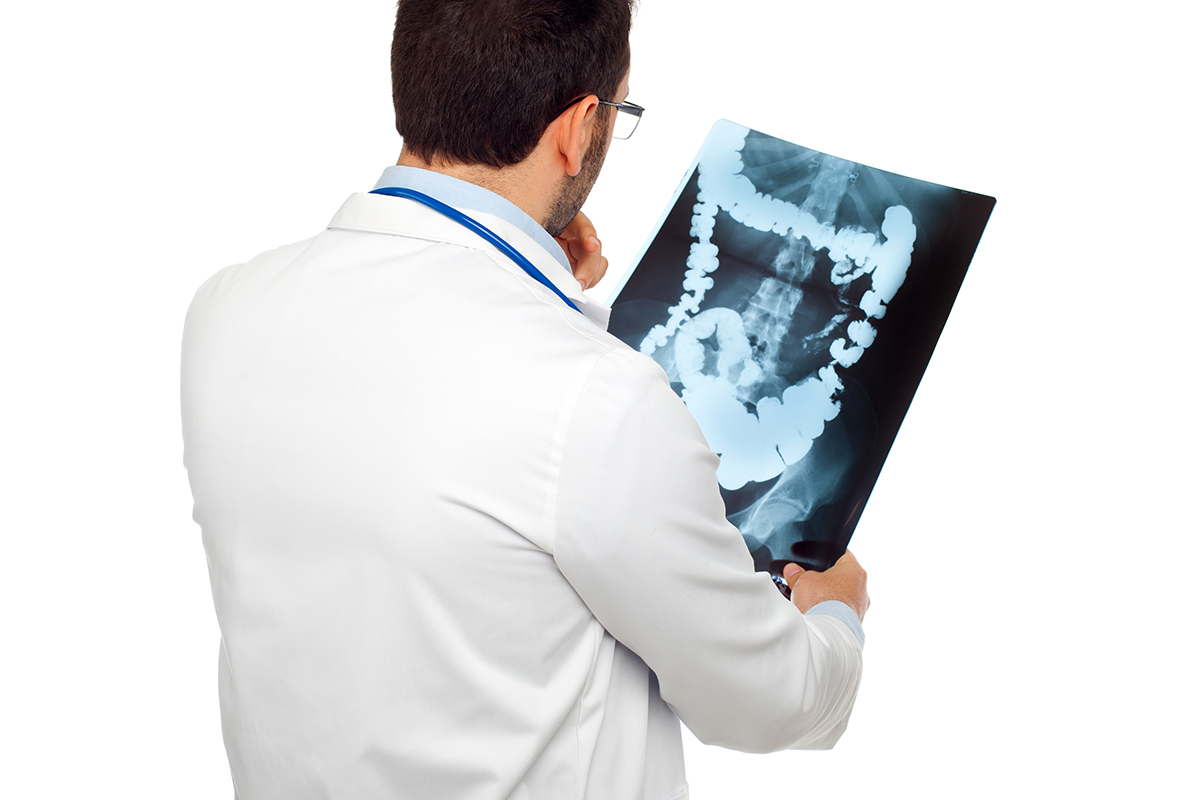Hirschsprung's disease is a condition that affects the colon and causes problems passing stool. The condition is present at birth (i.e. congenital) as a result of missing nerve cells in the muscles of the colon. A newborn who has Hirschsprung's disease usually has no bowel movement in the days after birth. If it is mild its manifestation may remain hidden later in childhood.
Symptoms
The signs and symptoms of Hirschsprung's disease vary depending on the severity of the condition. Usually the signs and symptoms appear shortly after birth, but sometimes they are not apparent until later in life.
The most obvious sign is the newborn's inability to have a bowel movement within 48 hours after birth.
Other signs and symptoms in newborns may include:
- Bloated belly
- Vomiting, including vomiting a green or brown substance
- Constipation or gas
- Diarrhoea
In older children, signs and symptoms may include:
- Bloated belly
- Chronic constipation
- Gases
- Inability to quench
- Fatigue
Reasons
It is not clear what causes Hirschsprung's disease, as a genetic mutation of the nerve-responsive cells is often pointed to. They control the muscle contractions that move food through the intestine; without the contractions, stool remains in the colon because it cannot be pushed out naturally. This results in fossilization of the mass, which can cause hard-to-repair injuries to the intestinal wall, as well as disruption of the natural microflora.
Risk factors
Factors that may increase the risk of Hirschsprung's disease include:
- Hirschsprung's disease can be hereditary. If you have a child who has this condition, future biological children may be at risk.
- Hirschsprung's disease is more common in men.
- Other inherited diseases. Hirschsprung's disease is associated with certain inherited conditions, such as Down syndrome and other abnormalities.
Complications
Children who have Hirschsprung's disease are predisposed to a serious intestinal infection called enterocolitis. Enterocolitis can be life-threatening and requires immediate treatment.
Diagnosis
The doctor may recommend one or more of the following tests to diagnose or rule out Hirschsprung's disease:
- Abdominal X-ray using contrast dye.
- Measuring the control on the muscles around the rectum (anal manometry). A manometry test is usually done in older children and adults.
- Taking a sample of colon tissue for testing (biopsy). This is the surest way to identify Hirschsprung's disease.
Treatment
For most people, Hirschsprung's disease is treated with surgery or ostomy surgery.
After surgery, most children are able to walk normally. However, within the first year after surgery the child is still at risk of developing a bowel infection (enterocolitis). Parents should therefore be alert and watch for the appearance of certain signs and symptoms of enterocolitis, such as:
- Bleeding from the rectum
- Diarrhoea
- Fever
- Bloated belly
- Vomiting
For more information, we at Medical Karaj are at your service.
Call us on the following numbers "Medical Karaj": 0879 977 401 or 0879 977 402.
Also keep an eye on our constantly updated Facebook content.








